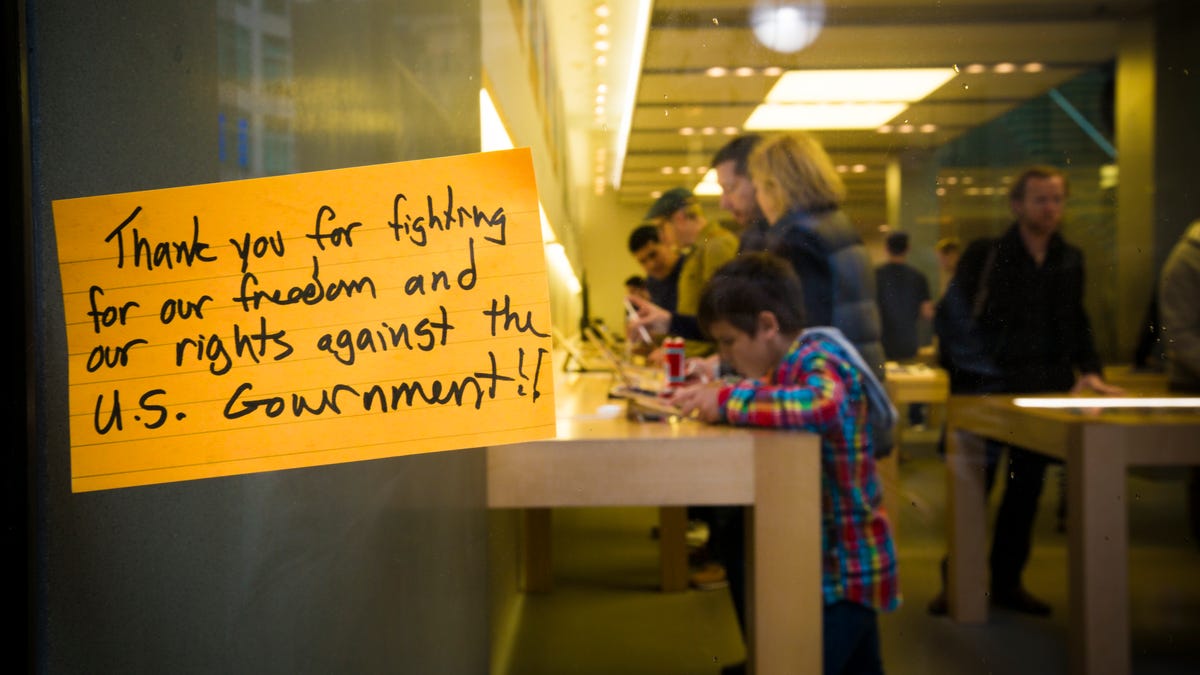Tim Cook says unlocking iPhone would be 'bad for America'
In an interview with ABC News, Apple's CEO reiterates that helping the FBI unlock an iPhone linked to a terrorist attack would set a dangerous precedent.
CEO Tim Cook believes Apple is making the right choice.
Cook on Wednesday once again defended Apple's decision to fight a court order demanding that it hack into an iPhone used by one of the shooters in the San Bernardino, California, massacre last December.
"We know that doing this could expose people to incredible vulnerabilities. This would be bad for America," Cook said in an interview on the ABC News program "World News Tonight with David Muir."
On February 16, a federal judge ordered Apple to cooperate with the FBI in unlocking an iPhone 5C used by one of the terrorists in the San Bernardino shootings. The order would require Apple to build a custom version of its iOS mobile software so investigators could access data protected by encryption. Apple contends that such a breach of security could, in essence, create a back door that would expose countless iPhone users to unreasonable risks.
"The only way to get information...would be to write a piece of software that we view as sort of the equivalent of cancer," Cook said in the ABC News interview. "We believe that is a very dangerous operating system."
The standoff between Apple and the FBI turns up the heat on a simmering battle between Washington and Silicon Valley over encryption -- the technology that encodes information to prevent unauthorized readers from seeing it. Apple and other technology companies argue that encryption is necessary to protect private, personal information. Law enforcement agencies say the technology hinders their ability to disrupt criminal and terrorist activity.
The FBI has contended that its request is limited to the one iPhone in question. FBI Director James Comey wrote Sunday in an op-ed column, "We don't want to break anyone's encryption or set a master key loose on the land." Cook countered this argument, saying its clear that this court order could set a precedent.
"If a court can ask us to write this piece of software, think about what else they could ask us to write -- maybe it's an operating system for surveillance, maybe the ability for the law enforcement to turn on the camera," Cook said. "And it's probably just not iPhone. If the government can order Apple to create such a piece of software, it could be ordered for anyone else as well. It doesn't stop here."
Cook also said the issue goes beyond the debate of privacy versus national security.
"I know people like to frame this argument as privacy versus national security. That is overly simplistic and it is not true," Cook said. "This is also about public safety. The smartphone that you carry has more information about you on it than probably any other singular device."
Apple has until Friday to respond to the court order, and a hearing is set for March 22 in US District Court for the Central District of California in Riverside. Apple has said it will fight the government's request all the way to the Supreme Court if necessary, and will reportedly turn to the First Amendment to defend its stance.
"Some things are hard and some things are right. And some things are both," Cook said in the interview. "This is one of those things."
Update, 4:50 p.m. PT: Adds more from Cook's interview on the ABC News program "World News Tonight with David Muir."


